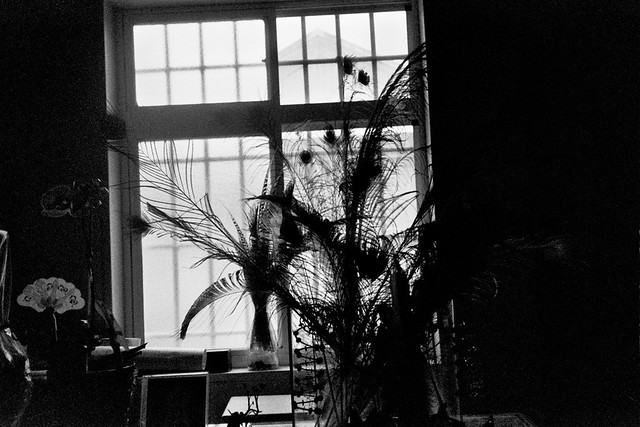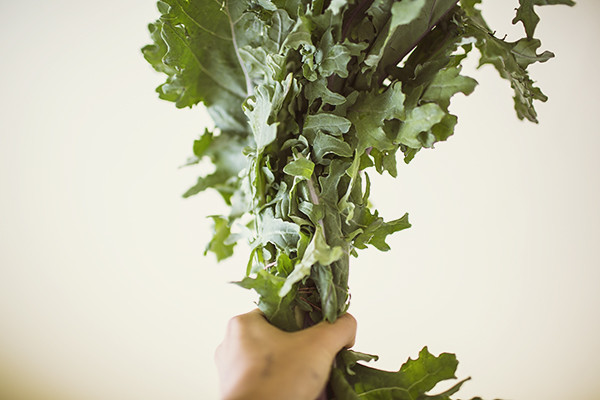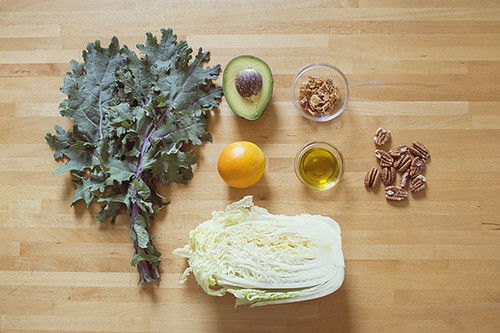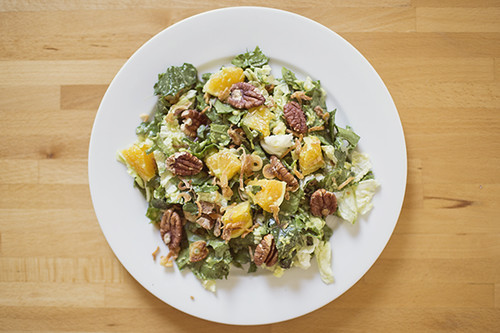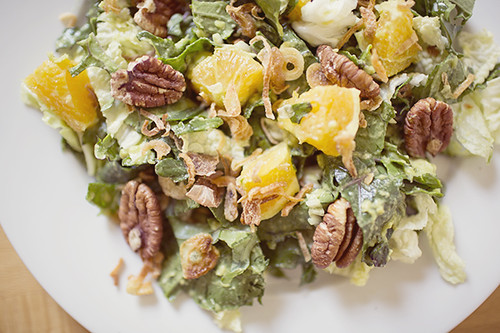This morning I woke up hungry for more.
The words I ingest in the first hour of the day lay the soil for the rest of it, and this is what differentiates the desire for words in the morning from that of the night. Think of words like a drink: a warming single malt is the nightcap that lets you lay down your head; the double-shot of espresso is the morning calisthenic you drowsily stumble into, depending on it to enliven you, shake you, set you on the right path.
In the morning, you need words to fill you up, not settle you down. You need words that will strengthen you for the rest of the day, or instill in you a way of being, an inexplicable method for interacting with the rest of the world. If the Psalms are warming nourishment, then Facebook status updates are surely a farce.When I wake up, I take my own pulse, out of routine, as if to confirm I'm still alive. I'm not sure why I do it, but I'd like to think I'm checking in with my own heart to see what I need for the day.
This morning I'm at my parents' house in the hills, in my childhood bedroom, where the most precious area of the room is the corner with a floor-to-ceiling bookshelf. Upon rousing, I walked straight to it.* The third shelf from the top is at eye-level for me, and all poetry resides on this shelf. I skim the book titles--Neruda, Plath, Rilke, Milosz--and settle on a stately, thick, dark green volume with gold embossing**.
When I search for words to fill me, I am a drug addict scouring the streets for his fix, and in that moment, I have the blindest, most assured faith, that the words I need will fall in front of my eyes. I want something to tell me how I feel--I want my feelings crystallized, phrased eloquently, beautifully, in ways I cannot do. I want to short-circuit the digging, the probing, the self-examination. Damn it, I just want the clarity, the ease, the comfort now. I know words can do for me what I can't do for myself. They crawl into my innermost crevices, sending little shock waves through my veins, playing cat's cradle with the fibrous strands of my being.
I flipped open to this Williams Wordsworth poem, which is quite long. It's nothing like the 140-character, byte-sized snippets that we shoot up like junkies, one hit after the next. I wanted something punchy, a quick-fix, but this wasn't that. This is a poem that leads you through landscapes slowly, into the landscape of Wordsworth's mind, into the physical places he once inhabited, into the space he has arrived just now. A poem of this length mandates patience and rumination.
We begin with the passage of time, the awareness that nostalgia brings. Right now is so far from where we were then. We revisit the cherished landscapes of our past, and we see again the same hedge-rows and copses and groves, and we return to that familiar refuge. We remember how the physical landscapes carried us, even after we left them, as Wordsworth notes here. The physical landscape become a mental landscape, a memory we return to for "tranquil restoration," when we are wearied and worn thin.
I have places in my head like that, like my parents' backyard, and how every summer morning, when I was home from college, I would drag a small plastic table and chair outside with a stack of books and journals, and eat a big bowl of cereal with peanut butter in the sun. The stillness of those summer mornings, the idle idyll of familiarity, knowing there was nowhere to be, and nowhere to go--those are the feelings I attribute to that time and landscape. Yet I know that if I accurately transcribed the murmurs of my heart, I would find anxiety and unrest. I would find an unsure, searching soul, an inner landscape without the tranquility of the landscape that surrounded it.
Camouflage would not have been possible.
And then there are those landscapes in my memory that are among the most beautiful that I have ever seen, that stirred in me the kind of dizzying nausea that only the sublime can invoke. God in nature, the sum of the parts, giver of that ecstatic amnesia that sifts out all that is absent from a place. That morning, a delicate quilt of spiderwebs, laced with dew drops, barely skimmed the surface of prehistoric ferns. The light in the clearing was crowned by a circle of tree tops, a spotlight searching through the morning mist.
We hiked the lone mountain, patchy green and yellow, with wilty wild flowers, scratchy straw, soil trodden only by quiet beasts lumbering above the ocean, heads bowed low. The ache of a beauty so sweet, wound tightly around the fear of losing it. How wide and expansive my heart, how I cradled that joy, that love.
What becomes of a landscape when you lose some part of the joy that created it in the first place? Is that place any different than how you first experienced it? Is it any less beautiful, any less vibrant? But isn't it funny how we smear our sadnesses across a scene, imbuing all of its physical components with our own vibrations? The happy tree, the sad brook, the angry wind, the serene pasture? We create, we imprint, we leave, we neglect. When we return, we are shaken by the bittersweet tonic of remembrance that inevitably courses through our veins. Our memories betray us, and so does time--even as it beautifies, purifies, and heals, so it also destroys.
Nothing remains the same. We are mere mortals, the world's ephemera.
After all, beauty is magnified by the heart. Now I know: my pulse tells me that I am alive and changing, that I am moving, and that I have moved on.
LINES
Composed a Few Miles Above Tintern Abbey, on Revisiting the Banks of the Wye During a Tour July 13, 1798
Five years have past; five summers, with the length
Of five long winter! and again I hear
These waters, rolling from their mountain-springs
With a soft inland murmur.--Once again
Do I behold these steep and lofty cliffs,
That on a wild secluded scene impress
Thoughts of more deep seclusion; and connect
The landscape with the quiet of the sky.
The day is come when I again repose
Here, under this dark sycamore, and view
These plots of cottage-ground, these orchard-tufts,
Which at this season, with their unripe fruits,
Are glad in one green hue, and lose themselves
'Mid groves and copses. Once again I see
These hedge-rows, hardly hedge-rows, little lines
Of sportive wood run wild: these pastoral farms,
Green to the very door; and wreaths of smoke
Sent up, in silence, from among the trees!
With some uncertain notice, as might seem
Of vagrant dwellers in the houseless woods,
Or of some Hermit's cave, where by his fire
The Hermit sits alone.
These beauteous forms,
Through a long absence, have not been to me
As is a landscape to a blind man's eye:
But oft, in lonely rooms, and 'mid the din
Of towns and cities, I have owed to them
In hours of weariness, sensations sweet,
Felt in the blood, and felt along the heart;
And passing even into my purer mind,
With tranquil restoration:--feelings too
Of unremembered pleasure: such, perhaps,
As have no slight or trivial influence
On that best portion of a good man's life,
His little, nameless, remembered, acts
Of kindness and of love. Not less, I trust,
To them I may have owed another gift,
Of aspect more sublime; that blessed mood,
In which the burthen of the mystery,
In which the heavy and the weary weight
Of all this unintelligible world,
Is lightened:--that serene and blessed mood,
in which the affections gently lead us on,---
Until the breath of this corporeal frame
And even the motion of our human blood
Almost suspended, we are laid asleep
In body, and become a living soul:
While with an eye made quiet by the power
Of harmony, and the deep power of joy,
We see into the life of things.
If this
Be but a vain belief, yet, oh! how oft,
In darkness, and amid the many shapes
Of joyless daylight; when the fretful stir
Unprofitable, and the fever of the world,
Have hung upon the beatings of my heart,
How oft, inspirit, have I turned to thee,
O sylvan Wye! thou wanderer thro' the woods,
How often has my spirit turned to thee!
And now, with gleams of half-extinguished thought,
With many recognitions dim and faint,
And somewhat of a sad perplexity,
The picture of the mind revives again:
While here I stand, not only with the sense
Of present pleasure, but with pleasing thoughts
That in this moment there is life and food
For future years. And so I dare to hope,
Though changed, no doubt from what I was when first
I came among these hills; when like a roe
I bounded o'er the mountains, by the sides
Of the deep rivers, and the lonely streams,
Wherever nature led: more like a man
Flying from something that he dreads, than one
Who sought the thing he loved. For nature then
(The coarser pleasures of my boyish days,
And their glad animal movements all gone by)
To me was all in all.--I cannot paint
What then I was. The sounding cataract
Haunted me like a passion: the tall rock,
The mountain, and the deep and gloomy wood,
Their colours and their forms, were then to me
An appetite; a feeling and a love,
That had no need of a remoter charm,
By thought supplied, nor any interest
Unborrowed from the eye.--That time I past,
And all its aching joys are now no more,
And all its dizzy raptures. Not for this
Faint I, nor mourn nor murmur; other gifts
Have followed; for such loss, I would believe,
Abundant recompence. For I have learned
To look on nature, not as in the hour
Of thoughtless youth; but hearing oftentimes
The still, sad music of humanity,
Nor harsh nor grating, though of ample power
To chasten and subdue. And I have felt
A presence that disturbs me with the joy
Of elevated thoughts: a sense sublime
Of something far more deeply interfused,
Whose dwelling is the light of setting suns,
And the round ocean and the living air,
And the blue sky, and in the mind of man:
A motion and a spirit, that impels
All thinking things, all objects of all thought,
And rolls through all things. Therefore am I still
A lover of the meadows and the woods
And mountains; and of all that we behold
From this green earth; of all the mighty world
Of eye, and ear,—both what they half create,
And what perceive; well pleased to recognise
In nature and the language of the sense
The anchor of my purest thoughts, the nurse,
The guide, the guardian of my heart, and soul
Of all my moral being.
Nor
perchance,
If I were not thus taught, should I the more
Suffer my genial spirits to decay:
For thou art with me here upon the banks
Of this fair river; thou my dearest Friend,
My dear, dear Friend; and in thy voice I catch
The language of my former heart, and read
My former pleasures in the shooting lights
Of thy wild eyes. Oh! yet a little while
May I behold in thee what I was once,
My dear, dear Sister! and this prayer I make,
Knowing that Nature never did betray
The heart that loved her; 'tis her privilege,
Through all the years of this our life, to lead
From joy to joy: for she can so inform
The mind that is within us, so impress
With quietness and beauty, and so feed
With lofty thoughts, that neither evil tongues,
Rash judgments, nor the sneers of selfish men,
Nor greetings where no kindness is, nor all
The dreary intercourse of daily life,
Shall e'er prevail against us, or disturb
Our cheerful faith, that all which we behold
Is full of blessings. Therefore let the moon
Shine on thee in thy solitary walk;
And let the misty mountain-winds be free
To blow against thee: and, in after years,
When these wild ecstasies shall be matured
Into a sober pleasure; when thy mind
Shall be a mansion for all lovely forms,
Thy memory be as a dwelling-place
For all sweet sounds and harmonies; oh! then,
If solitude, or fear, or pain, or grief,
Should be thy portion, with what healing thoughts
Of tender joy wilt thou remember me,
And these my exhortations! Nor, perchance—
If I should be where I no more can hear
Thy voice, nor catch from thy wild eyes these
gleams
Of past existence—wilt thou then forget
That on the banks of this delightful stream
We stood together; and that I, so long
A worshipper of Nature, hither came
Unwearied in that service: rather say
With warmer love—oh! with far deeper zeal
Of holier love. Nor wilt thou then forget,
That after many wanderings, many years
Of absence, these steep woods and lofty cliffs,
And this green pastoral landscape, were to me
More dear, both for themselves and for thy sake!
-William Wordsworth
*In my high school days I organized my bookshelf by genre, and within each genre, by author's last name (this organizational tact I sadly no longer possess)--childhood fiction on the top shelf (think Anne of Green Gables, Harry Potter), fiction on the second (Underworld, The Road, On Beauty), non-fiction on the third (books on the Beats, my obsession in high school; all of John Stilgoe's books on landscape theory; poetry); on the fourth, modern Christian theology (C.S. Lewis, N.T. Wright) and a smattering of other non-fiction ( Predictably Irrational, Justice; there's also Shel Silverstein); then food and cookbooks below that, and all of my encyclopedia, photo, and art books on the bottom rung.
** I bought this volume of English Poetry, the second of three in a set of "Harvard Classics," ("Collins to Fitzgerald") from the Book-Go-Round in downtown Saratoga, which I walked to from my parents' house on hot Summer days. The book (and it's still inscribed with the second-hand price) was $3 and originally belonged to Florence Worrell.
